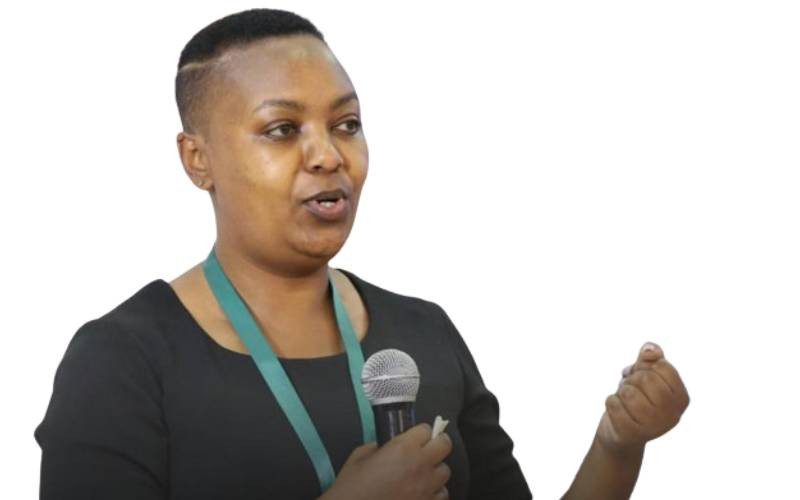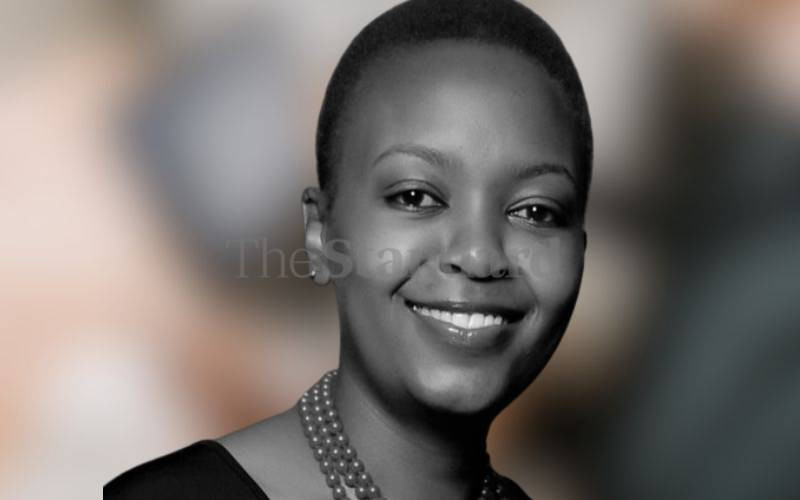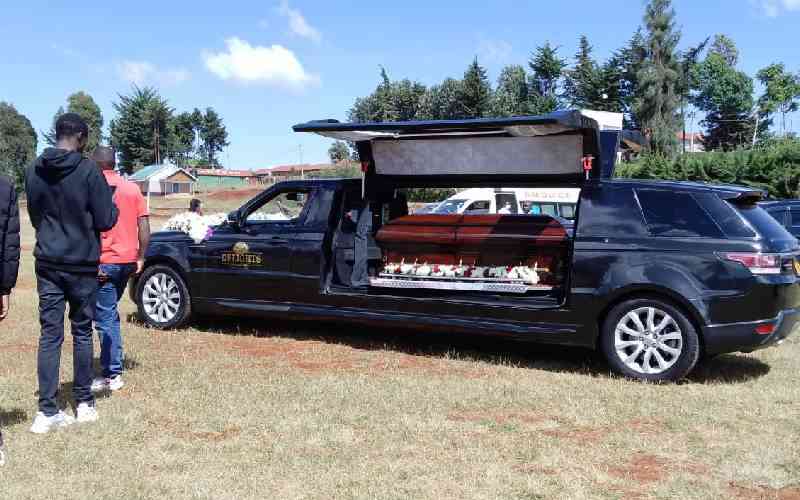By Kiundu Waweru
Kenya: The body of Shirley Wambui, the six-year-old girl stabbed to death by his father in the US arrived in Kenya on Wednesday, June 19.
Her mother, who survived the domestic fracas at her Irish Hill’s Apartment complex at South Bed in Indiana on the dawn of Saturday June 2, had arrived earlier.
Her father, Sebastian Miro, and his two sons, Anthony and Dominic Mburu, had also flown home from United States.
Burial arrangements were in full swing, and on Thursday June 20, young men from the shocked Mwea Village, a few kilometres from Thika town, arrived early to dig the grave. Women consoled the widow as they prepared meals for the crowd that had gathered.
By late afternoon, the grave was ready. On Friday, Wambui or Bobo, as the family called her, would finally be laid to rest.
The family had printed white T-shirts bearing a smiling image of Wambui and written, “In memory of Shirley, we love and we miss you Bobo,” this would be worn the next day.
Several grounds
It was not to be.
Shortly after 5pm, Miro received a chilling letter. It bore a letterhead from the chief magistrate’s court in Thika and ordered “the defendants, respondents (Lucy Wambui and Sebastian Miro) by themselves, their servants and/ or agents be restrained from interring the remains of the deceased Shirley Wambui Mundia pending the hearing and determination of this application.”
Miro’s home went cold. The village was in shock. “Why did they have to wait until the last minute?” wonders Anthony. We sought the answer from ‘they’ — Mundia’s family. Pius Mwaura Karanja, Shirley’s paternal grandfather, had moved to court on several grounds, including, “That the deceased (Shirley) and the father, Edward Mundia, died under unclear circumstances. That the respondents with no basis blamed the death on the plaintiff’s son, Mundia, and on this fallacious basis excluded him from organising the burial of the deceased.”
Further, Karanja told the court he wanted a postmortem done on Shirley. He also wanted her be buried next to her father at his Karibaribi home, Thika, according to Kikuyu traditions.
Mundia had been buried on June 18 at his father’s home.
After acting senior principal magistrate in Thika J.W Onchuru granted the orders, stopping the burial, the two families met in court on Monday, June 24.
“On Wednesday, the magistrate ruled that Mundia’s family should be allowed to perform the postmortem on Shirley. We were distraught already but the magistrate also said that we should meet the cost of the post-mortem examination,” said Miro.
Stay informed. Subscribe to our newsletter
Miro’s lawyer, Muturi Njoroge, had objected the move saying the right to bury the body did not lie with the family as the customary tradition has it, but with the surviving parent as stipulated in the Children’s Act 2001. Miro’s family protested this ruling and was given another day in court, Friday.
Mundia’s family says they moved to court believing there were inconsistencies from the Indiana prosecution office that said his son was killed from two gunshot wounds. However, the Indiana State Department of Health on Edward Mundia’s certificate of death says he died of multiple gunshot wounds to the chest.
Gunshot wounds
“Dr Oduor Johansen carried another postmortem on my son and reported that he had three gunshot wounds. For us, we had unanswered questions, including a stab wound that we did not know how he got it. We never got any information from the Kenyan or the American governments. We heard the news through the radio and Facebook.”
Karanja adds that they had to ascertain if there were inconsistencies in Shirley’s autopsy. “We suspected she too might have been shot by the US police.” However, the autopsies matched. Multiple knife stab wounds. Dr Oduor says the girl had 15 stab wounds. The pathologist says theyre were indeed three gunshot wounds on Mundia, “two on the chest, and one on the arm”. Could he ascertain if the same knife that was used to stab Shirley inflicted the wound on her father?
“It was difficult because the wounds had been stitched. I do not know how they do it in the US, but here in Kenya we do not stitch wounds after an autopsy.”
After the autopsy, the families met again in court last Friday. Karanja’s family was satisfied and did not wish to pursue the matter further. Lucy Wanjiku could go ahead and lay her daughter to rest in peace.
 The Standard Group Plc is a
multi-media organization with investments in media platforms spanning newspaper
print operations, television, radio broadcasting, digital and online services. The
Standard Group is recognized as a leading multi-media house in Kenya with a key
influence in matters of national and international interest.
The Standard Group Plc is a
multi-media organization with investments in media platforms spanning newspaper
print operations, television, radio broadcasting, digital and online services. The
Standard Group is recognized as a leading multi-media house in Kenya with a key
influence in matters of national and international interest.
 The Standard Group Plc is a
multi-media organization with investments in media platforms spanning newspaper
print operations, television, radio broadcasting, digital and online services. The
Standard Group is recognized as a leading multi-media house in Kenya with a key
influence in matters of national and international interest.
The Standard Group Plc is a
multi-media organization with investments in media platforms spanning newspaper
print operations, television, radio broadcasting, digital and online services. The
Standard Group is recognized as a leading multi-media house in Kenya with a key
influence in matters of national and international interest.








